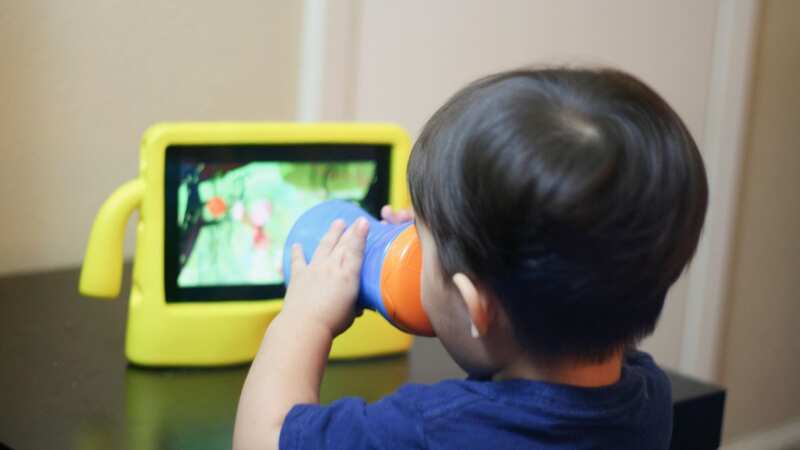Teenager's furious plea to parents with 'iPad kids' that 'breaks his heart'

Sometimes, when you're a busy parent, things can feel overwhelming, and so you may bend your own rules about screen time - but one teenager has begged parents not to do this, as they fear the future consequences.
Aiming the rant particularly at "millennial parents", the teen begged those with kids to "not turn your kids into iPad kids", explaining that they have a sibling who is "generation alpha" - which is the demographic cohort succeeding Generation Z, born after 2020 - and they can only speak in "slang." They went on to say that it's "heartbreaking" to see the situation their sibling is in, and they were blaming too much screen time, referring to it as a form of "neglect."
They penned: "Parenting isn't just giving your child food, a bed and unrestricted internet access. That is a recipe for disaster. My younger sibling is Gen Alpha. He can't even read. His attention span has been fried and his vocabulary reduced to Gen Alpha slang. It breaks my heart.
"The amount of neglect these toddlers get now is disastrous. Parenting is hard, as a non-parent, I can't even wrap my head around how hard it must be. But is that an excuse for neglect? NO, IT F**KING ISN'T. Just because it's hard doesn't mean you should take shortcuts. Please. This s**t is heartbreaking to see."
In the comments on Reddit, many people agreed about screen time, with one writing: "Dude. As a 22 year old I'm so glad my parents encouraged books when I was younger. I didn't even get a phone until I was 14 because I didn't even want one. I did spend a lot of time on basic computer screens but never social media.
 Teachers, civil servants and train drivers walk out in biggest strike in decade
Teachers, civil servants and train drivers walk out in biggest strike in decade
"I think at the very least if you're going to give your kids screens keep it somewhat productive, eBooks or even video games are better for brain development than mindless TikToks." Another concerningly commented: "If you don't raise your kids, they'll find some hate group on the Internet to raise them for you."
Another said it was important parents took an "active" role in their child's learning, saying: "One of the things that my mum did with me was to sit with me (in the very young years) and actively take an interest in my learning the alphabet, numbers, and the times table. Same with reading books out loud.
"As I got into progressively higher grades, she'd check my homework. As I got into even higher grades, where she wasn't able to keep up with my work, she'd still sit and listen to me explain concepts for tests/homework, and assess my confidence with my answers. I don't see that often nowadays. It's a 'did you do your homework?' 'Yes' 'OK, then you can watch TV' and that's about it.
"Everyone should a strong and active role in parenting. Before anyone says anything, yes, my mum worked full-time, and she still had time for me."
One Redditor wrote: "It's unpopular, but I agree with you. The internet is highly addictive, adults can't even handle it, and we give it to kids and say 'They need to learn how to self-regulate.' That isn't how that works. Kids shouldn't have unlimited access. It also shouldn't be used so much in school either."
Others contemplated how good parents of millennials had it, sharing: "Our parents don't know how good they had it that the screens we were addicted to weren't the pure advertisement machines they are today. Even the internet wasn't even close to the brain melter it is now. We could sit on our screens and still walk away with our own thoughts and ideas."
Some people even criticised parents who are over-reliant on technology to entertain their kids, saying their screens are "always" on, and they cannot eat a meal without an iPad nearby. So, how much screen time is too much? According to the NHS: "Advice from the National Institute for Health and Care Excellence (NICE) suggests that children should have TV-free days, or have a two-hour limit on the time spent in front of screens.
"A limited amount of child-friendly screen time can be educational, but it's important to ensure the content is appropriate for your child's age."
They also encouraged parents to be a good example for their kids by not constantly being on screens, and by choosing things you and your child can "watch or play together."
Read more similar news:
Comments:
comments powered by Disqus

































